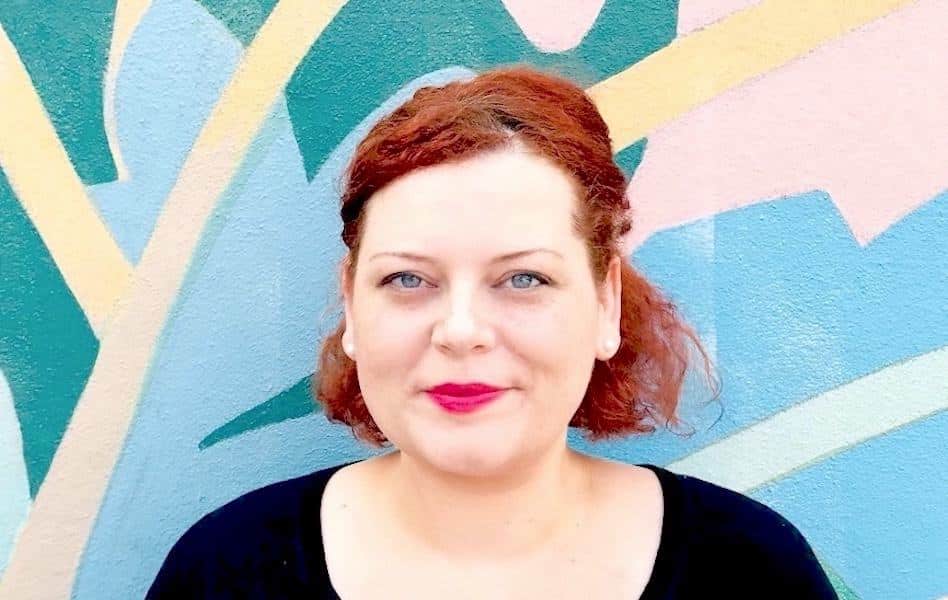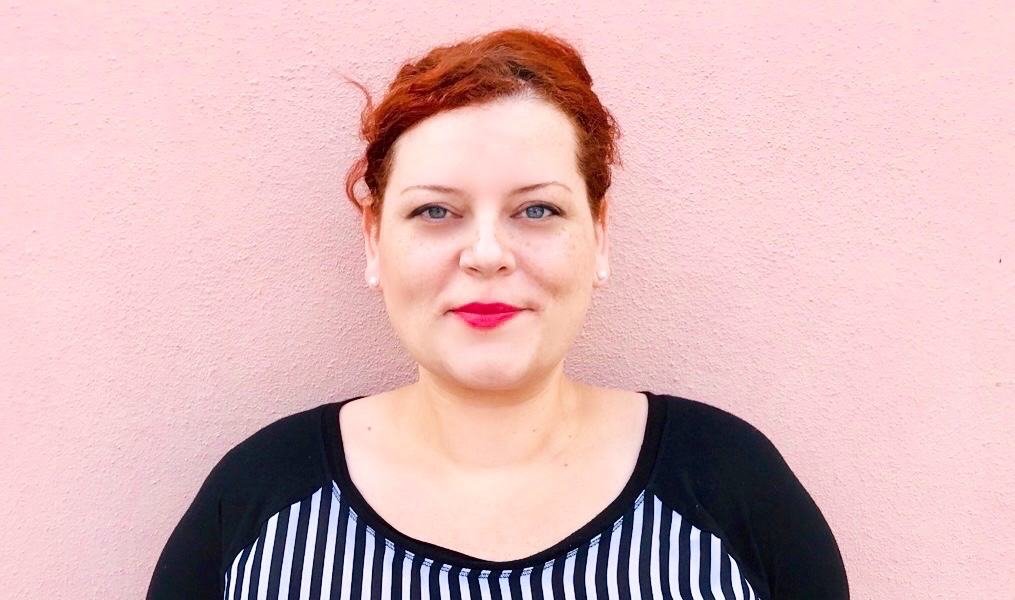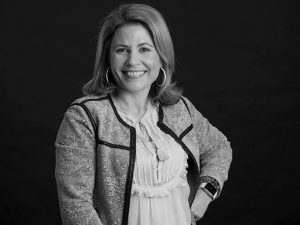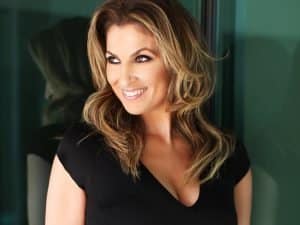Kiki Roeder: Founder of Redeor Media


Kiki Roeder
Title: Founder of Redeor Media
Industry: Content and Digital Marketing Consultancy
If you told Kiki Roeder as a kid that “business” would be the primary descriptor of her career, she would have laughed over her crayons. It was not her ambition to establish, let alone exit, two companies by the age of 32. Yet, Kiki never outgrew being the girl everyone wanted to be assigned to their group projects. Her ability to tackle and thrive amongst challenges later fostered opportunities to execute ideas into products and services.
As a co-founder and COO of a startup that was bootstrapped to a sizeable exit, Kiki learned how to optimize limited resources for growth and impact. She became really good at figuring things out.
“When you’re the one responsible for all areas of operations, anything, from marketing, production, staffing, research, development, or accounting, may fall into your lap. It taught me to be nimble and tough,” Kiki stated. “The traditional view of leadership is someone who takes center stage, but some strive for success outside of the spotlight. I’m one of those people.”
From the background, Kiki contributed to some incredible organizations. She served as director of communications and digital strategy at a major university, did research at the Oak Ridge National Laboratory, lead a startup and technology news publication as its editor-in-chief, and was the co-founder and president of a marketing and development agency that she sold last fall.
Today, Kiki works with clients across four continents as a writer and consultant. She also owns several media properties.
Tell us a bit about your job and your day-to-day.
Words are at the center of my work. My background in multi-platform communications helps me produce mission-driven messaging for media publications and organizations of all sizes.
Strategic storytelling gives me the ability to shape information and impressions about brands, individuals, places, and ideas. I love learning and leveraging insights into human behavior. Simple phrases have incredible power to educate, entertain, and spark action.
My recent decision to focus on content is driven by a need for purpose and stimulation. For most of my adulthood, I have defined myself by my job title. That wasn’t always best. I made many mistakes in pursuit of triumph. You don’t often hear that. Entrepreneurial diatribe preaches to push through discomfort, “fail faster,” and that success is directly related to hustle. The truth: It’s much more complicated than that. Last year, I ran two organizations that saw exponential growth. I also was miserable and burnt out.
Many worry about finding balance. What’s missing is an open dialogue. This is why I recently created Redeor Media, a resource company dedicated to the realization, design, and organization of business, career, and life goals. The edutainment arm of Redeor is launching a website in November 2017. Its content and coaching will feature honest and forthright insights into ambition and what it’s like to “adult” today.
What do you love most about what you do?
Creative problem-solving. Transforming communications or business processes to be more operational and efficient has been at the center of my career. I get giddy when achieving growth through a thoughtful strategy.
Many early-stage entrepreneurs think that they have to “do all the things” to be optimal with their business development or marketing. That’s not true. It takes research, documentation, focus, and application of a plan to demonstrate value and earn engaged audiences or clientele.
What was the best piece of career advice you were given?
“Be your own cheerleader.” You have to advocate your worth. As women, we often think that if we work hard enough someone will notice. We then find ourselves disappointed when our good work is overlooked. So speak up! Ask for promotions, take on assignments that intimidate you, and align yourself with people who you think are better than you. Amazing opportunities happen for those who confidently vocalize to others and themselves, “I can achieve that!”
What was the biggest challenge that you face in your role? How do you tackle that?
One-more-thing-itis. My can-do attitude sometimes (okay, many times) leads me to promise too much. I think a lot of women are challenged by this. We’re often raised to be helpful and put others first. This can lead to pressures to commit our time to everyone who asks.
I find that I can sustain productivity through scheduling blocks of my time to different tasks on my calendar. For example, I assign specific times for email and have office hours for calls and meetings with clients and staff. I also document how long activities take me to complete by indicating them on my calendar with tags associated to client, industry, or type of work (e.g. article, market research, social media strategy, proposal, etc.). This gives me data about how long certain activities take me to complete.
Prioritization also necessitates declining tasks and communicating your capacity to complete things. When you don’t you eventually let someone down. Those hurt relationships are self-inflicted and preventable. I learned the hard way that it is better to set expectations from the beginning or as soon as you find yourself swimming.

How do you unplug at the end of the workday or workweek?
I trained as a dancer growing up, so I frequently have solo living room or office dance parties. Pacing around to music for a few minutes helps me de-stress and focus. I also relish road trips and photo safaris.
In moments of uncertainty or doubt, how do you build yourself back up?
Being an entrepreneur means that you’re constantly in a state of uncertainty or doubt. If you don’t feel that, you may be doing it wrong. The difficult part is not aligning the success of your work-life with your personal worth. People may not like you, they may even try to sabotage you. You may have a glitch with your product or blow a presentation. That doesn’t make you a bad person. It means you’ve been given an opportunity to grow.
If you feel overwhelmed, ask yourself, “What does success look like in this situation?” Write down your answer, ask it of your team. It will focus you to be proactive instead of reactionary. Also, if you need to, go into the bathroom and look yourself in the mirror and say, “You’ve got this!” As hackneyed as that advice may seem, it works. Seriously. I’ve given myself hundreds of whispered pep talks in private places. Lastly, if someone or a situation makes you feel doubtful or downright crappy, do something kind. When I anonymously help a foe, I find that it removes their power over me. You can overcome most obstacles with grit and kindness.
What tools/apps do you use on a daily basis that you can’t live without?
My spouse kids that 20% of my sentences start with, “I heard on a podcast.” I’m constantly streaming Audible and podcasts. Since I document and schedule everything, my digital calendar and analog journal are essentials. Physically writing down ideas helps me with brainstorming, prioritization, and working out worries. The Command Line also makes everyday computing so much faster.
My favorite apps are Grammarly, Discoverly, Slack, Calendly, Later, Pocket, TripCase, and Google Hangouts. Hangouts and Google Voice are my inexpensive hacks to getting calls and texts from anywhere in the world.
What’s your favorite thing about your workspace?
I’ve been working on remote teams and as a digital nomad for years. That means a lot of coffee shops, which means a lot of coffee. Coffee is my favorite thing.
Is there a woman (or women) past or present that you admire or look up to for inspiration and motivation?
There are so many contemporary female voices that give me inspiration. I admire and look forward to content from Sallie Krawcheck, CEO and co-founder of Ellevest; Tina Roth Eisenberg, legendary designer and founder of Creative Mornings; Kathryn Minshew, CEO and co-founder of The Muse; Piera Gelardi, Executive Creative Director and co-founder of Refinery29; Paola Antonelli, Director of R&D at MOMA; Sophia Amoruso, founder of GirlBoss Media; and Brit Morin, CEO, and founder of Brit & Co.
Those within my immediate circle that I look to for motivation are Stefanie Jewett, CEO of Activvely, Titania Jordan, CPO of Bark, and Danasia Fantastic, EiC of The Urban Realist. They unapologetically define their worth, steward connections, and support fellow female entrepreneurs.
If you were given 3 more hours per day – how would you use them?
Sleep, please.
What 3 pieces of advice would you offer to other female entrepreneurs?
- Don’t worry about being liked, worry about being your best.
- Communicate value. Well-crafted pitches and thoughtful follow-up make you memorable.
- Entrepreneurship is emotional for any gender; make decisions based on facts. Gather data about your market, users, workflow, competitors, differentiators, and who and what will help you succeed. Leverage this information unbiasedly. Tweak accordingly. Repeat.
Fun Fact: What Movie Character Best Describes Kiki’s Life?
“I’m a gold star seeking girl with frizzy hair. I’m Hermione Granger from the Harry Potter series.” Kiki says.
Want to keep up with Kiki? You can follow her online on Twitter @Kiki_Roeder at and @Redeor_Goals, and be sure to check out her companyRedeor.Com!
Emily Sprinkle, also known as Emma Loggins, is a designer, marketer, blogger, and speaker. She is the Editor-In-Chief for Women's Business Daily where she pulls from her experience as the CEO and Director of Strategy for Excite Creative Studios, where she specializes in web development, UI/UX design, social media marketing, and overall strategy for her clients.
Emily has also written for CNN, Autotrader, The Guardian, and is also the Editor-In-Chief for the geek lifestyle site FanBolt.com








Responses